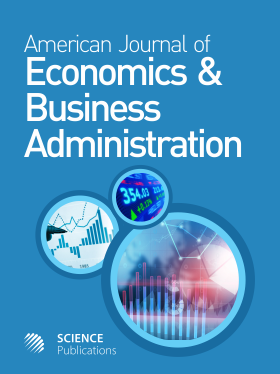The Street Vendors of Bangkok: Alternatives to Indoor Retailers at a Time of Economic Crisis
- 1 Shinawatra International University, Thailand
Abstract
Problem statement: During an economic crisis, consumers will use different techniques to make their money go as far as possible: More carefully comparing prices at point of sale locations, bringing out the coins they previously left unused in saving banks, switching to lower cost options and choosing to shop in less convenient locations in order to find discounts. One such option is to use street vendors rather than regular indoor retailers. Street vendors can provide cheaper goods because, in many cases, they do not need to pay for electricity or water bills and their rental costs can be much lower. Further, vendors themselves may be more willing to enter into haggling negotiations and offer cash discounts to well-known or regular customers. However, it would be wrong to assume that all street vendors are the same in terms of character or that they operate according to the same business model. Approach: This is a case study based principally on secondary sources and recapitulating primary research reported previously. Results: Research among street vendors in several locations reveal a wide variety of experiences, ability to provide value added goods and services and intentions and ambitions for the business concerned. While the majority of vendors have quite low levels of ambition, earn minimum wages or less and have little concept of marketing or adding value to products, there are other vendors who have organized their own international supply chains, contract manufactured their own branded goods and franchise stalls throughout the city of Bangkok. In some cases, therefore, street vending should be encouraged because it can offer a route out of the informal economy and into the formal economy for people who might not otherwise be able to achieve regular employment. Vendors also offer, in some cases, good quality alternatives to indoor retailers and help keep prices as a whole down. Conclusion/Recommendations: This case study addressed the question: When should the informal economy be supported and when should it be regulated on the basis that its low standards and semi-legal status damage the economy and society as a whole? The answer is not definitive and sufficient information is provided for readers to determine appropriate answers in different circumstances, which will be informed by individual opinions and principles.
DOI: https://doi.org/10.3844/ajebasp.2010.185.188

- 4,940 Views
- 4,455 Downloads
- 7 Citations
Download
Keywords
- Informal economy
- branding
- spatial economics
- consumer behavior
